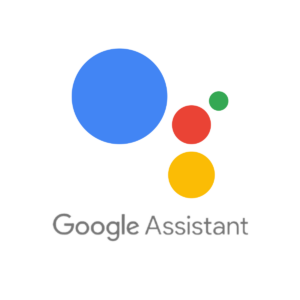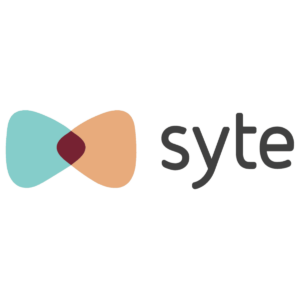AI for Retail
AI for Retail – Smarter Shopping & Customer Experience Automation
The retail industry is dramatically transforming as Artificial Intelligence (AI) reshapes everything from personalized shopping experiences to back-end supply chain optimization. With increasing competition and evolving consumer expectations, retailers are turning to AI-powered solutions to drive efficiency, enhance customer satisfaction, and gain a competitive edge.
This article explores how AI redefines retail, from more competent inventory management to hyper-personalized marketing.
Revolutionizing Customer Experience with AI
In today’s digital-first economy, customers expect seamless, personalized shopping experiences. AI makes this possible by analyzing customer behaviour, predicting preferences, and delivering tailored recommendations. Retailers use AI-powered chatbots, recommendation engines, and sentiment analysis to enhance customer interactions, making shopping more intuitive and enjoyable.
From personalized promotions to AI-driven virtual shopping assistants, retailers leverage AI to understand customer needs and deliver customized solutions. AI-driven customer service chatbots can provide real-time support, answer queries, and even process orders—reducing response times and improving overall satisfaction.
AI-Powered Inventory and Demand Forecasting
Managing inventory efficiently is crucial for retailers, and AI is revolutionizing how businesses track and predict demand. Traditional inventory management systems rely on historical data. Still, AI takes it further by analyzing real-time sales trends, weather conditions, and even social media activity to anticipate consumer demand accurately.
Retailers can minimize stock shortages and overstock issues by implementing AI-driven demand forecasting. These predictive analytics tools help businesses optimize stock levels, reduce waste, and ensure that the right products are available at the right time. Companies like Walmart and Amazon have already implemented AI to refine their inventory strategies, improving supply chain efficiency.
AI-Driven Pricing Strategies
Pricing is a key factor in a retailer’s success, and AI enables dynamic pricing models that adjust in real-time based on market trends, competitor pricing, and customer behaviour. Retailers can use AI algorithms to analyze vast amounts of data and set competitive prices that maximize profit while maintaining customer satisfaction.
AI-driven pricing tools also help retailers identify optimal discount strategies, preventing unnecessary markdowns while ensuring timely promotions to attract buyers. By integrating AI into pricing strategies, businesses can remain agile and responsive to market fluctuations.
Enhancing Retail Security with AI
Retail fraud and theft are persistent challenges, but AI improves security through advanced surveillance and fraud detection. AI-powered cameras and facial recognition technology help prevent theft by quickly identifying suspicious behaviour. Additionally, AI-driven fraud detection tools analyze transaction patterns to flag fraudulent purchases before they occur.
Retailers also use AI for cybersecurity, protecting customer data from breaches and ensuring secure transactions. As e-commerce grows, AI-driven fraud prevention tools become essential in maintaining trust and security for businesses and consumers.
AI in Supply Chain and Logistics
A well-optimized supply chain is crucial for retail success, and AI plays a central role in improving logistics and fulfilment operations. AI-driven route optimization ensures faster and more efficient deliveries by analyzing traffic patterns, fuel costs, and weather conditions.
Retailers also leverage robotic process automation (RPA) in warehouses, using AI-powered robots for sorting, packing, and even last-mile delivery. Companies like Amazon and Alibaba have pioneered AI-driven supply chain automation, reducing costs and ensuring timely deliveries.
Real-World Applications of AI in Retail
Several leading retailers have successfully integrated AI into their operations:
- Sephora uses AI-powered chatbots and virtual try-on technology to enhance the online shopping experience, allowing customers to test products digitally before purchasing.
- Nike employs AI-driven personalization in its mobile app, analyzing user preferences to offer tailored recommendations and exclusive promotions.
- Amazon Go utilizes AI-powered checkout technology that eliminates the need for cashiers, allowing customers to grab items and leave while the AI system automatically processes payments.
The Future of AI in Retail
The future of AI in retail is promising, with emerging trends such as AI-powered virtual shopping assistants, augmented reality (AR) try-on experiences, and voice commerce gaining traction. As AI technology advances, retailers who embrace these innovations will remain competitive in an increasingly digital landscape.
How to Implement AI in Your Retail Business
If you’re looking to integrate AI into your retail operations, here’s how to get started:
- Assess Your Needs – Identify key areas where AI can drive the most impact: customer experience, inventory management, or supply chain optimization.
- Explore AI Tools – Check out the AI Tools section on Replace Humans to find solutions tailored to retail needs.
- Start with a Pilot Project – Implement AI solutions on a small scale, measure their effectiveness, and scale up based on results.
- Train Your Team – Ensure employees understand how to leverage AI tools to enhance business operations effectively.
- Continuously Optimize – AI thrives on data, so continuously analyze performance and make necessary adjustments to maximize its impact.
Artificial Intelligence is revolutionizing the retail industry, enhancing customer experiences, optimizing inventory management, and improving supply chain efficiency. By leveraging AI-driven tools, retailers can stay ahead of consumer trends, reduce costs, and create more personalized shopping experiences.
Showing all 20 results
-

Algolia AI – AI-Powered Search & Recommendation Engine for E-Commerce
Try it -

Amazon Alexa – Voice AI for Smart Homes and Entertainment
Try it -

Apple Siri – Intelligent Voice Assistant for Apple Devices
Try it -

Asana – Work Management Platform with AI Insights
Try it -

Canva – AI-Assisted Design & Image Creation Platform
Try it -

ChatGPT Enterprise – Advanced AI Virtual Assistant for Business
Try it -

ClearMetal AI – AI-Powered Predictive Logistics & Supply Chain Optimization (acquired by project44)
Try it -

Copy.ai – Automated Copywriting Tool for Marketers & Entrepreneurs
Try it -

DALL-E by OpenAI – AI Image Generator for Original Artwork
Try it -

Focal Systems AI – AI-Powered Store Shelf Monitoring & Inventory Automation
Try it -

Freshdesk Messaging – AI Chat & Support Automation
Try it -

Google Assistant – Voice-Activated Virtual Assistant for All Devices
Try it -

Intercom – Customer Communication Platform with AI Chatbots
Try it -

Jasper – AI Copywriting & Content Generation Assistant
Try it -

RetailNext – AI-Powered Foot Traffic Analytics
Try it -

Slack – Real-Time Team Communication & AI-Enhanced Workflows
Try it -

Syte AI – AI-Powered Visual Search for Retail & E-Commerce
Try it -

Tidio – Live Chat & AI Chatbots for E-commerce
Try it -

Vue.ai – AI-Powered Digital Stylist for Retail & Personalized Shopping
Try it -

Writesonic – AI Writer for Blogs, Ads, and Website Copy
Try it
AI for Retail – Smarter Shopping & Customer Experience Automation
The retail industry is dramatically transforming as Artificial Intelligence (AI) reshapes everything from personalized shopping experiences to back-end supply chain optimization. With increasing competition and evolving consumer expectations, retailers are turning to AI-powered solutions to drive efficiency, enhance customer satisfaction, and gain a competitive edge.
This article explores how AI redefines retail, from more competent inventory management to hyper-personalized marketing.
Revolutionizing Customer Experience with AI
In today’s digital-first economy, customers expect seamless, personalized shopping experiences. AI makes this possible by analyzing customer behaviour, predicting preferences, and delivering tailored recommendations. Retailers use AI-powered chatbots, recommendation engines, and sentiment analysis to enhance customer interactions, making shopping more intuitive and enjoyable.
From personalized promotions to AI-driven virtual shopping assistants, retailers leverage AI to understand customer needs and deliver customized solutions. AI-driven customer service chatbots can provide real-time support, answer queries, and even process orders—reducing response times and improving overall satisfaction.
AI-Powered Inventory and Demand Forecasting
Managing inventory efficiently is crucial for retailers, and AI is revolutionizing how businesses track and predict demand. Traditional inventory management systems rely on historical data. Still, AI takes it further by analyzing real-time sales trends, weather conditions, and even social media activity to anticipate consumer demand accurately.
Retailers can minimize stock shortages and overstock issues by implementing AI-driven demand forecasting. These predictive analytics tools help businesses optimize stock levels, reduce waste, and ensure that the right products are available at the right time. Companies like Walmart and Amazon have already implemented AI to refine their inventory strategies, improving supply chain efficiency.
AI-Driven Pricing Strategies
Pricing is a key factor in a retailer’s success, and AI enables dynamic pricing models that adjust in real-time based on market trends, competitor pricing, and customer behaviour. Retailers can use AI algorithms to analyze vast amounts of data and set competitive prices that maximize profit while maintaining customer satisfaction.
AI-driven pricing tools also help retailers identify optimal discount strategies, preventing unnecessary markdowns while ensuring timely promotions to attract buyers. By integrating AI into pricing strategies, businesses can remain agile and responsive to market fluctuations.
Enhancing Retail Security with AI
Retail fraud and theft are persistent challenges, but AI improves security through advanced surveillance and fraud detection. AI-powered cameras and facial recognition technology help prevent theft by quickly identifying suspicious behaviour. Additionally, AI-driven fraud detection tools analyze transaction patterns to flag fraudulent purchases before they occur.
Retailers also use AI for cybersecurity, protecting customer data from breaches and ensuring secure transactions. As e-commerce grows, AI-driven fraud prevention tools become essential in maintaining trust and security for businesses and consumers.
AI in Supply Chain and Logistics
A well-optimized supply chain is crucial for retail success, and AI plays a central role in improving logistics and fulfilment operations. AI-driven route optimization ensures faster and more efficient deliveries by analyzing traffic patterns, fuel costs, and weather conditions.
Retailers also leverage robotic process automation (RPA) in warehouses, using AI-powered robots for sorting, packing, and even last-mile delivery. Companies like Amazon and Alibaba have pioneered AI-driven supply chain automation, reducing costs and ensuring timely deliveries.
Real-World Applications of AI in Retail
Several leading retailers have successfully integrated AI into their operations:
- Sephora uses AI-powered chatbots and virtual try-on technology to enhance the online shopping experience, allowing customers to test products digitally before purchasing.
- Nike employs AI-driven personalization in its mobile app, analyzing user preferences to offer tailored recommendations and exclusive promotions.
- Amazon Go utilizes AI-powered checkout technology that eliminates the need for cashiers, allowing customers to grab items and leave while the AI system automatically processes payments.
The Future of AI in Retail
The future of AI in retail is promising, with emerging trends such as AI-powered virtual shopping assistants, augmented reality (AR) try-on experiences, and voice commerce gaining traction. As AI technology advances, retailers who embrace these innovations will remain competitive in an increasingly digital landscape.
How to Implement AI in Your Retail Business
If you’re looking to integrate AI into your retail operations, here’s how to get started:
- Assess Your Needs – Identify key areas where AI can drive the most impact: customer experience, inventory management, or supply chain optimization.
- Explore AI Tools – Check out the AI Tools section on Replace Humans to find solutions tailored to retail needs.
- Start with a Pilot Project – Implement AI solutions on a small scale, measure their effectiveness, and scale up based on results.
- Train Your Team – Ensure employees understand how to leverage AI tools to enhance business operations effectively.
- Continuously Optimize – AI thrives on data, so continuously analyze performance and make necessary adjustments to maximize its impact.
Artificial Intelligence is revolutionizing the retail industry, enhancing customer experiences, optimizing inventory management, and improving supply chain efficiency. By leveraging AI-driven tools, retailers can stay ahead of consumer trends, reduce costs, and create more personalized shopping experiences.
